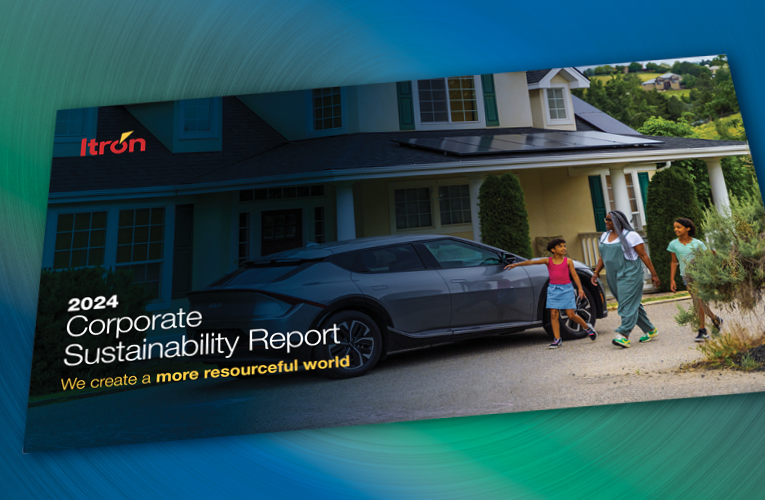
Industry Insights
A New Chapter for Smart Cities: Five Trends Driving Urban Innovation
Artificial intelligence (AI), climate tech and utility partnerships are transforming cities, with urban technology reaching a critical inflection point. Drawing from Itron's extensive work with cities and utilities worldwide, here are five key trends actively reshaping the future of smart cities.
1. The Second Wave of Smart Lighting Will Drive Urban Innovation
Traditional LED streetlight infrastructure is approaching a major upgrade cycle. Cities that adopted first-generation LED technology in the early 2000s are planning to transition to advanced LED systems that offer substantially higher efficiency (lumens per watt). More significantly, these upgrades present an opportunity to introduce sophisticated networked lighting controllers that provide operational insights and metering devices—a shift that could help cities slash their electricity costs, which can consume up to 40% of municipal energy budgets.
2. Edge AI Will Replace Centralized Smart City Systems
AI in smart cities is shifting from centralized data centers to edge computing, enabling real-time, localized decision-making while reducing energy consumption. For example, traffic monitoring systems can automatically adjust street lighting levels based on current conditions, with data processed locally rather than relying on central servers.
3. Climate Resilience Will Become the Primary Driver of Smart City Investment
Recent extreme weather events are accelerating the integration of climate resilience into core smart city infrastructure. Predictive systems for flood monitoring, heat islands and wildfire detection are becoming the norm rather than the exception. Cities are shifting from reactive to proactive approaches, embedding climate considerations into all aspects of urban planning and infrastructure development.
4. Utility-City Partnerships Will Create New Business Models
A new model of collaboration between utilities and cities is emerging to better serve their common customer base (residents and businesses) while addressing shared challenges, such as aging infrastructure, urbanization, extreme weather, constrained budgets and more. Inspired by approaches like the one in San Antonio, Texas, where CPS Energy shares its Advanced Metering Infrastructure with the local water utility, SAWS, more municipalities are embracing resource-sharing approaches. This trend is helping utilities unlock new revenue streams while enabling cities to avoid redundant infrastructure investments.
5. Return on Investment Will Redefine Smart City Success
The definition of smart city success is undergoing a fundamental shift. Rather than focusing solely on technology deployment, cities are prioritizing solutions that deliver clear returns and tangible benefits to their residents, businesses and visitors. The most successful urban centers won’t necessarily be those with the biggest budgets, but those that cost-effectively combine multiple use cases underneath a single open, standards-based platform.
The Path Forward
These trends come at a crucial time for urban development. Cities continue to face budget constraints and implementation challenges, but these limitations are driving innovation in how solutions are developed and deployed.
The future of smart cities isn’t just about connecting devices—it is about connecting people, infrastructure and ideas in meaningful ways. Think of it as building a citywide ecosystem where everything works in harmony, from streetlights to water meters to environmental sensors.
As cities and utilities demonstrate increasing openness to novel approaches and evolving collaboration, the smart city landscape is set for significant transformation. Success will come not from deploying technology for its own sake, but from applying practical, cost-effective solutions to real urban challenges.
Learn more about Itron’s smart city solutions and the CityEdge platform here.
Related Articles
HTML Example
A paragraph is a self-contained unit of a discourse in writing dealing with a particular point or idea. Paragraphs are usually an expected part of formal writing, used to organize longer prose.




